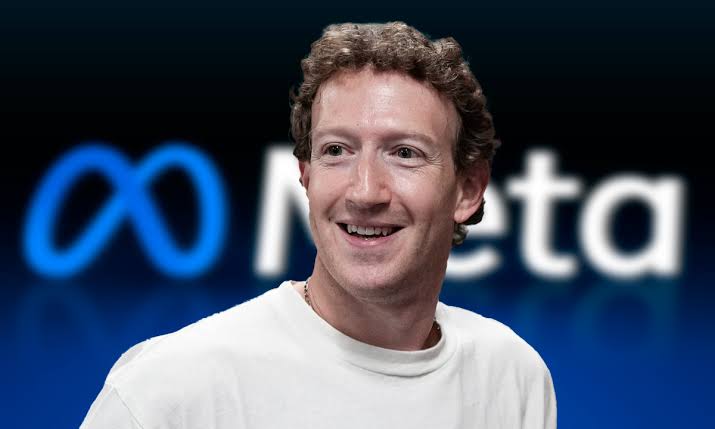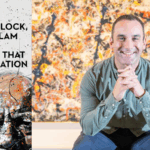Meta, the parent company of Facebook, Instagram, and Threads, announced sweeping changes to its content moderation policies on Tuesday (7 January), marking a significant shift in how the platform approaches speech around sensitive issues. The changes, spearheaded by CEO Mark Zuckerberg and Chief Global Affairs Officer Joel Kaplan, are part of a broader strategy to align the platform’s policies with what they describe as “mainstream discourse.” However, the updates have sparked widespread criticism for potentially enabling harmful rhetoric. The changes also include the removal of the third-party fact-checking company that has been used as part of its moderation policy.
A Shift in Hateful Conduct Policies
The most striking changes occurred in Meta’s “Hateful Conduct” policy, which regulates discussions around topics like immigration, gender, and sexual orientation. Previously, Meta prohibited content that targeted individuals based on their protected characteristics, such as race, gender identity, or sexual orientation. Now, the company allows users to allege that LGBTQ+ individuals have “mental illnesses” based on their sexual orientation or gender identity.
Meta justified the change by citing the prevalence of such discourse in political and religious debates. A statement from the company noted that allegations of mental illness or abnormality would be permitted because of their “common non-serious usage.” Critics, however, argue this opens the door to harmful stereotypes and stigmatisation of marginalised groups.
This is not the only controversial update. Meta removed language prohibiting claims that individuals from certain racial or ethnic groups spread diseases like COVID-19. Such accusations, including those targeting Chinese people during the pandemic, were previously categorized as hate speech.
The updated policy also allows content arguing for gender-based exclusions from professions like teaching, military service, and law enforcement, provided it is framed as a religious belief. Similarly, discussions about limiting access to gender-specific spaces, such as bathrooms or support groups, are now explicitly permitted under the guise of debate about social exclusion.
A Broader Approach to Free Speech
In a blog post, Kaplan explained the rationale behind these changes: “It’s not right that things can be said on TV or the floor of Congress, but not on our platforms.” Zuckerberg echoed this sentiment in an accompanying video, describing the platform’s previous policies as “out of touch with mainstream discourse.”
The changes appear to reflect Meta’s desire to embrace a more relaxed approach to content moderation, aligning its guidelines more closely with political and cultural debates. By removing restrictions on certain types of speech, Meta aims to position itself as a platform that facilitates open dialogue, even on divisive issues.
Pushback from Advocacy Groups and Experts
Despite Meta’s framing, advocacy groups and online safety experts have expressed deep concern over the updates. Critics argue that loosening restrictions on hate speech and harmful rhetoric risks fostering a toxic environment. By permitting accusations of mental illness based on gender identity or sexual orientation, Meta could exacerbate discrimination against LGBTQ+ individuals, particularly transgender people, who are already disproportionately targeted by online abuse.
“It’s a dangerous move,” said Amanda Lewis, director of an online safety nonprofit. “Allowing this kind of rhetoric under the guise of political or religious discourse doesn’t just normalize harmful stereotypes—it legitimizes them. And for marginalized communities, the consequences can be devastating.”
Meta’s decision to remove a clause in its hateful conduct policy noting that hate speech can “promote offline violence” has also raised alarms. The clause, introduced in 2019, acknowledged the connection between online rhetoric and real-world harm. Its removal has led critics to question whether Meta is backtracking on its responsibility to prevent violence incited through its platforms.
Balancing Speech and Safety
Meta has defended its updates, pointing out that some protections remain in place. For example, the company continues to ban Holocaust denial, blackface, and comparing Black people to sub-human life forms. It also maintains a prohibition on dehumanising immigrants by labeling them as animals, pathogens, or criminals.
However, these protections coexist uneasily with the new carve-outs that permit discussions of exclusion and discrimination under certain contexts. By broadening the scope of what is allowed, Meta has effectively shifted the onus onto users to navigate an increasingly ambiguous policy landscape.
Global Implications
Meta’s updates are global in scope, raising questions about how they will be implemented in regions with stricter hate speech laws. When asked whether the company would tailor its policies to comply with local regulations, spokesperson Corey Chambliss pointed to Meta’s existing mechanisms for addressing legal differences. However, critics worry that loosening restrictions globally could embolden hate speech in countries with weaker safeguards for marginalized communities.
A Turning Point for Content Moderation?
The policy overhaul comes at a time when tech companies are grappling with the balance between free expression and preventing harm. Meta’s changes reflect a growing trend of prioritising free speech—even at the expense of vulnerable groups.
For some, the updates are a welcome departure from what they see as overly restrictive moderation practices. For others, they represent a dangerous rollback of protections for marginalised communities. The removal of partnerships with fact-checking organizations as part of this overhaul further fuels concerns about the platform’s commitment to combating misinformation.
The Guardian this week have criticised the move Meta: “We live in a dangerous age of misinformation and disinformation. One that is often fuelled by social media. In Australia, around half of adults get their news from social media, with Facebook, Instagram and Elon Musk’s X making up three of the top four sources. Meta’s move could make the truth even harder to find online.”
“Meta has said it will follow the lead of X and move away from third-party checks of misleading content in favour of user-based notes. Nobel prize-winning journalist Maria Ressa said Meta’s change in policy would lead to a “world without facts”. Disinformation, as a Guardian editorial put it this week, is a “potent political weapon” that can make “voters believe falsehoods while distrusting – even hating – those who don’t”.
“Facebook has already contributed to the demise of journalism and this will be the final nail in the coffin,” Nina Jankowicz, the former Biden administration disinformation czar who is now CEO of the American Sunlight Project, said in an emailed statement. “Newsrooms get grants from Facebook to provide fact-checks. That money allows them to do other journalism. Zuckerberg’s announcement is a full bending of the knee to Trump and an attempt to catch up to Musk in his race to the bottom. Fact-checking was not a panacea to disinformation on Facebook but it was an important part of moderation.”
As Meta doubles down on its commitment to align its platforms with mainstream discourse, it faces mounting pressure to address the real-world consequences of its decisions. Whether the updates will foster meaningful dialogue or fuel divisiveness remains to be seen. However, one thing is clear: Meta’s content moderation policies are entering uncharted territory, and the stakes have never been higher












